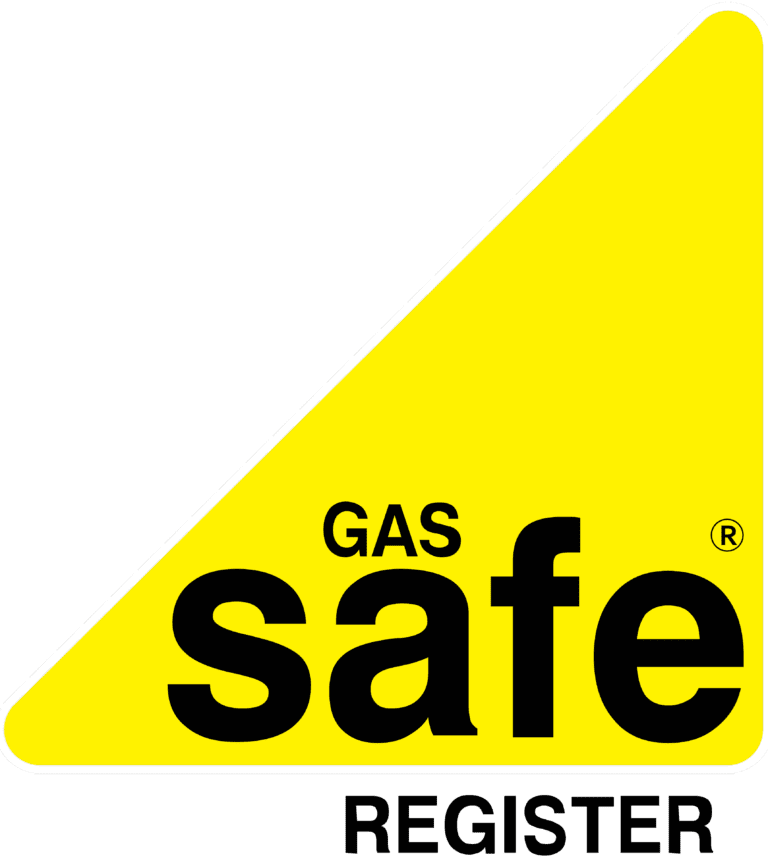Table of Contents
Knowing when to tackle plumbing repairs yourself versus calling a professional can save you hundreds of pounds – but making the wrong choice could cost thousands or even put your family at risk. This guide helps UK homeowners make informed decisions about plumbing and heating repairs.
The Legal Requirements: Gas Work and Safety
By law, only Gas Safe registered engineers can work on gas appliances, pipework, and flues. This includes boilers, gas hobs, central heating systems, and gas fires. Attempting DIY gas work is illegal and extremely dangerous, potentially resulting in:
- Carbon monoxide poisoning
- Gas leaks and explosion risk
- Invalidated home insurance
- Fines up to £20,000
- Criminal prosecution
Always verify your engineer’s Gas Safe registration at gassaferegister.co.uk before any gas work begins.
Safe DIY Plumbing Repairs
What You CAN Do Yourself
Basic Maintenance Tasks:
- Unblocking sinks and toilets with plungers
- Replacing toilet seats and basic fittings
- Changing tap washers and O-rings
- Bleeding radiators
- Adjusting toilet mechanisms
- Installing new shower heads
- Basic pipe insulation
Simple Fixes:
- Tightening loose connections (with appropriate tools)
- Replacing flexible hoses on washing machines
- Installing new bathroom accessories
- Clearing drain blockages with appropriate chemicals
Required Tools for DIY:
- Adjustable spanners
- Pipe wrench
- Plunger
- Basic screwdriver set
- Pipe cutter (for plastic pipes only)
When to Call a Professional Plumber
Immediate Professional Help Required
Emergency Situations:
- Burst pipes or major leaks
- No hot water from boiler
- Gas smells or suspected leaks
- Sewage backups
- Frozen or burst boiler pipes
- Major flooding
Complex Installations:
- New bathroom installations
- Boiler replacements or repairs
- Central heating system modifications
- Kitchen sink relocations
- Shower pump installations
- External pipework
Legal and Safety Requirements:
- Any work involving gas appliances
- Boiler servicing and repairs
- Central heating system installations
- Work requiring Building Regulations approval
- Insurance claim repairs
Cost Comparison: DIY vs Professional
DIY Potential Savings
- Tap washer replacement: Save £50-80 in callout fees
- Toilet unblocking: Save £80-120
- Radiator bleeding: Save £60-100
- Basic drain clearing: Save £100-150
Professional Value
While professional services cost more upfront, they provide:
- Guaranteed workmanship (typically 12 months)
- Insurance coverage for any damage
- Compliance with regulations
- Long-term reliability
- Emergency support
The Hidden Costs of DIY Mistakes
Common DIY Disasters:
- Over-tightening connections causing pipe damage: £200-500 repair
- Incorrect washer installation causing ongoing leaks: £150-300
- Wrong tool usage damaging fixtures: £100-400 replacement
- Water damage from improper repairs: £1,000-5,000+
A £80 professional callout often prevents £500+ in damage repairs.
Red Flags: Stop and Call a Professional
Immediately stop DIY work if you encounter:
- Gas smells during any repair
- Electrical components near water
- Structural modifications required
- Multiple failed attempts at the same repair
- Water appearing in unexpected locations
- Unusual noises from heating systems
Smart Homeowner Strategy
Before Starting Any DIY Repair:
- Research thoroughly – watch reputable tutorials
- Gather proper tools – don’t improvise
- Know your limits – understand when to stop
- Have a backup plan – keep professional contacts ready
- Check insurance – ensure DIY work is covered
Building a Relationship with Professionals
Establish connections with trusted local professionals before emergencies occur:
- Gas Safe registered heating engineers
- Qualified plumbers for complex work
- Emergency contacts for urgent repairs
Professional Services Worth the Investment
Annual Maintenance:
- Boiler servicing (£80-120 annually)
- Central heating system checks
- Drain surveys and cleaning
- Comprehensive plumbing inspections
These services prevent costly breakdowns and maintain warranty coverage.
Making the Right Choice
Choose DIY for: Simple, non-gas, low-risk repairs where you have the right tools and knowledge.
Choose Professional for: Gas work, complex installations, emergency repairs, and when you’re unsure about any aspect of the job.
The golden rule: When in doubt, consult a professional. A £100 consultation call can prevent a £1,000 mistake.
At Plumbing Angels, we encourage informed homeowners while ensuring safety remains paramount. Our Gas Safe registered engineers provide honest advice about what you can safely tackle yourself.
For professional plumbing and heating advice, contact Plumbing Angels on 01732 792 454. We’re here to help you make the right choice for your home’s safety and your budget.
By law, only Gas Safe registered engineers can work on gas boilers, central heating systems, gas pipes, flues, and any gas appliances. This includes repairs, installations, and servicing. DIY gas work is illegal and extremely dangerous.
Simple repairs can save £50-150 in callout fees. Examples include tap washer replacement (save £50-80), toilet unblocking (save £80-120), and radiator bleeding (save £60-100). However, mistakes can cost £500+ in damage repairs.
Stop immediately if you encounter gas smells, electrical components near water, multiple failed attempts, or structural modifications required. If you’re unsure about any aspect of the repair, consult a professional.
Coverage varies by policy. Many insurers cover DIY work if performed competently, but damage from poor workmanship may be excluded. Always check your policy and consider professional work for major repairs.
Water damage from improper repairs, which can cost £1,000-5,000+. Common costly mistakes include over-tightening connections causing pipe damage (£200-500) and incorrect installations causing ongoing leaks.
Always verify registration at gassaferegister.co.uk, check local reviews, ask for written quotes, and ensure they provide Gas Safe certificates for any work completed. Established local companies often provide better long-term support.
Smart homeowners know their limits. Safe homeowners respect them.

